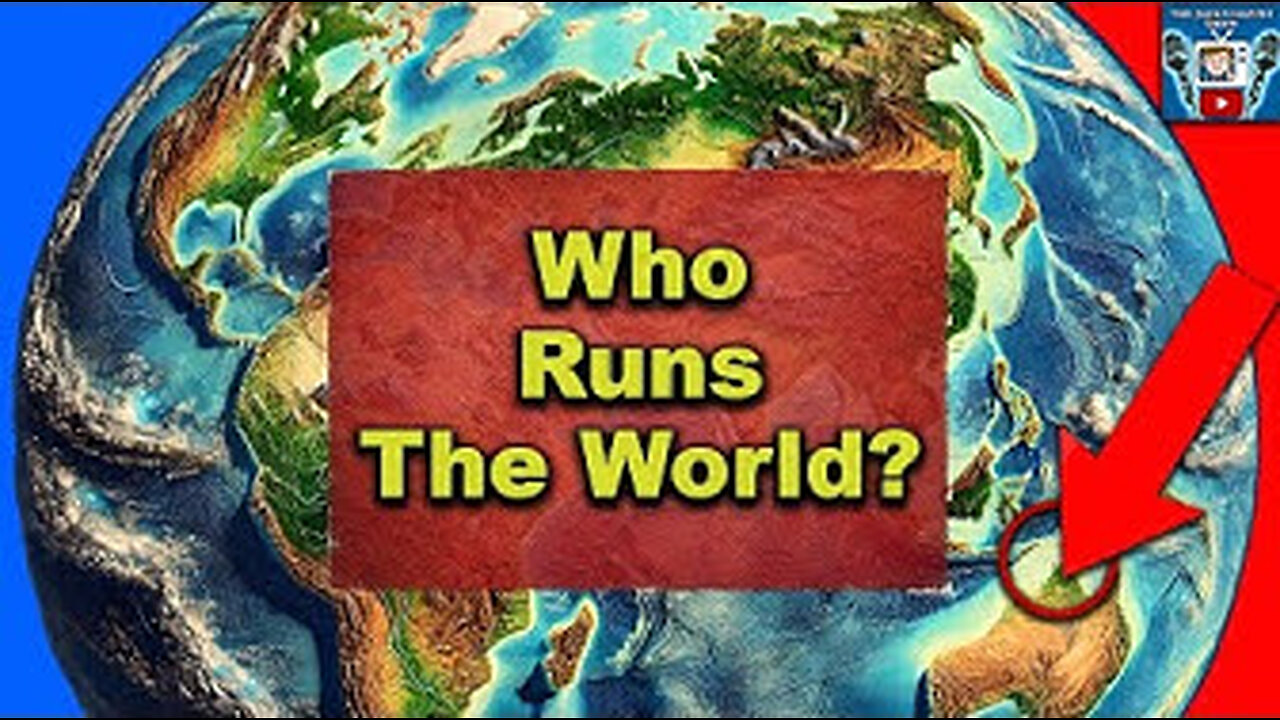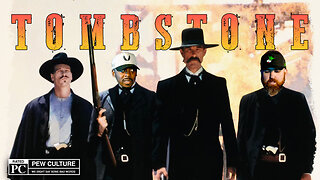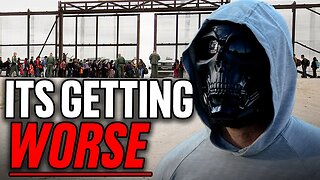Premium Only Content

The Entire History of the GLOBAL ECONOMY Explained: How The World Runs. Globalization Collapse?
The Entire History of the GLOBAL ECONOMY Explained: How The World Runs. Globalization Collapse?
-
34,118 views Jul 15, 2024
Jack Chapple
-
today's economy is a marvel—a complex, well-oiled machine with absolutely no faults whatsoever. But have you ever questioned, why is the global economy, is the global economy. Why is it setup the way it is?
-
How how did we go from a society of trading goats, to one where the middle class person cant afford a 1 bedroom apartment in torontos. How did we get to a world of globalization? Well, This is Everything You will Ever Need to know about the History of the global economy: And its Incoming Collapse?
-
2nd Channel:  / @chapple3388
-
FAIR USE FOR EDUCATIONAL PURPOSES
-
Mirrored From:
https://www.youtube.com/@JackChappleShow
-
Ah, antiquity—the time when humans decided that merely hunting and gathering was too easy and that it was high time they invented stress. So, they settled down, started farming, and unintentionally laid the foundation for globalization. Welcome to the Neolithic Revolution, the era when humans thought, "Wouldn't it be great if we didn't have to move around so much?"
-
Thus, agriculture was born, and with it, the seeds (pun intended) of global trade. Around 10,000 BC, in a stroke of genius or sheer laziness, humans began farming in the Fertile Crescent, a region that sounds a lot more comfortable than it actually was. This region, covering parts of modern-day Iraq, Syria, Lebanon, Israel, and Jordan, became the first to host large-scale agriculture. Grains like wheat and barley were domesticated, leading to surplus food and, consequently, the first economic boom. This surplus allowed some people to do things other than farming—like inventing pottery, weaving, and, most importantly, figuring out new ways to annoy their neighbors. Because when you have more grain than you can eat, you can trade it for shiny objects, and before you know it, you've got yourself an economy.
-
Now, with surplus food came the need to trade, because who wouldn't want to swap their extra grain for some pretty beads or a nice piece of obsidian? Trade routes sprang up, linking villages and, eventually, early cities. By 6000 BC, long-distance trade networks had formed, with luxury items like lapis lazuli traveling all the way from Afghanistan to Mesopotamia. That’s right, ancient humans were global traders long before the internet made it cool. Fast forward to around 3500 BC, and we have the rise of the first economic superpowers: Mesopotamia and Egypt. These civilizations weren't just farming anymore; they were building cities, inventing writing systems, and constructing monuments to remind future generations that they were indeed a big deal. In Mesopotamia, the Sumerians developed one of the earliest forms of writing—cuneiform—which, surprise, surprise, was used to keep track of trade and inventory. Meanwhile, in Egypt, the pharaohs were busy building pyramids and establishing trade networks that reached as far as the Levant and Nubia. The Nile River was their highway, and they used it to transport goods like gold, papyrus, and linen. By 3000 BC, we enter the Bronze Age, named for the new metal alloy that everyone suddenly couldn't live without. Bronze, made from copper and tin, was stronger and more durable than previous materials, making it ideal for tools, weapons, and, naturally, showing off. This technological leap allowed civilizations to expand their influence even further. The Minoans on Crete, for example, became maritime traders, spreading their influence across the Aegean Sea. They traded goods like pottery, olive oil, and wine with neighboring regions, helping to lay the groundwork for the interconnected Mediterranean world. With all this trading and technological advancement, you might think everyone was living the high life. But no, most people were still toiling away in the fields or working as artisans. The concept of a middle class was, at best, a distant dream. The wealth generated by trade largely ended up in the hands of the elite, who used it to build grand palaces and fund lavish lifestyles. But hey, it wasn't all bad. These early civilizations did establish the foundations of economic systems, creating the first markets and formalizing trade practices. They also invented money, or at least the precursor to money, in the form of standardized weights and measures, which made trading a bit more straightforward and less reliant on bartering your goat for your neighbor's grain.
-
 25:38
25:38
Clownfish TV
14 hours agoAmerican Eagle Sydney Sweeney Situation is INSANE...
9558 -
 2:46
2:46
Blackstone Griddles
13 hours agoBetty's Breakfast Tacos on the Blackstone Griddle
4983 -
 2:23
2:23
The Quiet Part
15 hours agoCanada is no longer requiring immigrants to speak English?!
2024 -
 13:03
13:03
Dr Disrespect
3 days agoDr Disrespect’s BIGGEST Announcement Yet
106K43 -
 21:08
21:08
GritsGG
14 hours agoRank 1 POV - Spectating Solos!
5.21K -
 40:23
40:23
pewculture
1 day ago $3.39 earnedThis is the best western movie ever made! EP#25
15.8K5 -
 44:43
44:43
Omar Elattar
8 months agoAmerican Idol Finalist: “I Had No Plan B! - It Was Idol Or Nothing”
6.59K1 -
 58:56
58:56
The Connect: With Johnny Mitchell
1 day ago $30.77 earnedA Migrant Smuggler Reveals How Cartel Trafficking Works, WARNS Of Conditions At The Border
106K51 -
 LIVE
LIVE
Lofi Girl
2 years agoSynthwave Radio 🌌 - beats to chill/game to
206 watching -
 57:55
57:55
Man in America
15 hours agoDisturbing Signs America Is Becoming a Technocratic Slave State w/ Shannon Joy
80.2K89